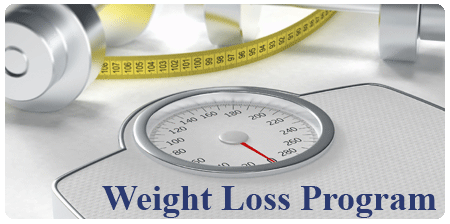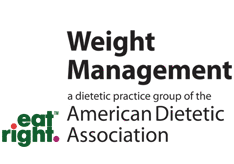
Hospital-Based Programs
(Proprietary diet plans developed by the hospitalâs own staff, or diet plans affiliated with VLCD vendors such as Novartis (Optifast) and HMR, or syndicated programs by commercial weight loss companies)
Type of Counseling: by dietitian or nutritionist, one-to-one
Typical Cost: 250-500
Type Program: varies, proprietary plans developed by the hospital
Type of Foods Used: regular grocery store food
At-Home or Direct Mail Plan Available? Not applicable
Summary
Through the late 1980s and early 1990s, many hospitals were lured into the weight loss field, tempted by potentially lucrative income and profits. No new weight loss centers had to be built – the facility and space (and staff) was already there, frequently underutilized. For a while, when liquid fasting was booming, many hospitals did fare quite well. However, when that boom came to a halt in 1991-92, hospitals found that diet programs were no longer profitable, and they had to work harder to attract clients. Marketing was not a skill they were accustomed to, or at which they were especially adept.
Consequently, in the past many hospitals have been discouraged with weight loss programs based at their facilities, because insurance did not cover it, unless directly related to another medical condition. That has changed, with new IRS allowances for deductions related to both commercial and medical weight loss programs.
But, they have not left entirely. Rather, theyâve shifted to alternative formats (syndicated programs such as The LEARN Program For Weight Control, low-cost counseling programs developed by the hospital plans involving low overhead, where they can use existing hospital resources and staff to perform marketing and record-keeping functions more cost-effectively).
Of the approximately 4,900 community hospitals in the United States, BestDietForMe.com estimates that approximately 60% offer some form of weight loss programor about 2,949 community hospitals.
Types of Weight Loss Programs Hospitals Offer
Based on interviews with hospital staff and the medically monitored program providers, it seems that hospital weight loss programs can be classified into one of three groups, with varying prices, as follows:
A) Nutritional Counseling
The least expensive and simplest kind of program, generally priced at 80-200 for a 6-14 week plan. Bestdietforme.com best estimate is that about 2,211 hospitals (the majority, 75%) offer this type of low-involvement, low-cost program. We think this type of program has become more popular since the early 1990s. Of this total, several hundred facilities use the LEARN Education Centerâs program for weight control, or the Providence Heart Diet.
B) Moderate-Involvement Program
This consists of counseling classes or offering a program licensed from one of the major commercial diet chains such as Weight Watchers, Jenny Craig, etc., or a program developed by the hospital itself. This type program uses special foods or entrees, but not a very-low-calorie fasting diet. In this program, strict weekly check-ups by a physician are not required. This program is estimated to cost about 60/week for 18 weeks, or a total of 1,000. BestDietForMe.com estimates that about 338 hospitals offer this type of weight loss program (or 11% of U.S. hospitals).
C) Very-Low-Calorie, High-Involvement Program
This is the most costly variation of hospital-based diet program, involving a liquid protein diet, medically monitored weekly, with lab testsoffered through one of the major vendors such as Novartis Nutrition (Optifast), HMR, etc. Bestdietforme.com estimates that about 400 hospitalsnow offer this type program, which typically costs 2,300-2,500. This is down substantially from the estimated 730 hospitals offering this type of diet plan in late 1993. This is due to the fact that Redux and the phen-fen plan were wildly popular in 1996-97, and hurt enrollments in these programs substantially. However, fasting programs are returning to popularity once again.
Sample Hospital Weight Loss Programs
Johns Hopkins Weight Management Center
Johns Hopkins Greenspring Station
2360 W. Joppa Road
Lutherville, MD 21093
410-847-3733
The Johns Hopkins Weight Management program has three levels of care. They are as follows:
Level I – Personal Options
This program is for moderately overweight individuals. The program includes private weekly lifestyle counseling sessions with a registered dietitian and/or psychologist and/or exercise psychologist. The cost is 25.00-50.00 per visit after modified evaluations* are complete.
Level II â Lifestyles
This program is for moderately or significantly overweight individuals. This program includes a comprehensive, low-calorie three-phase treatment plan including nutritional supplements. The cost for this program is 25.00 – 50.00 per visit plus cost of the supplement (approximately 44/week) after evaluations* and individual follow-up sessions are complete.
The evaluations for Level I and Level II consist of:
- Metabolic Assessment – 50.00
- Nutrition Assessment, Prep. & Materials – 115.00
- Behavioral Assessment – 115.00
- Physical Fitness Testing & Exercise Program – 115.00
- Total Evaluations Costs = 395.00
The evaluations for Level III includes the above plus a doctorâs consultation and a physical exam, for a total cost of 585.
Level III – Medically Monitored Lifeplan
This program is for individuals significantly overweight with or without serious medical conditions needing more rapid weight loss and the supervision of a physician. It is a comprehensive, low calorie four-phase treatment plan including nutritional supplements and/or medication, if appropriate. The cost of this program is 114 per week plus the evaluations as in Level I and Level II with the addition of a Physician Consultation and Physical Exam at the price of 190.00 (or 140 with recent EKG and labs)for a total cost of 585.00 (or 520.00 with recent EKG and lab results).
Palos Community Hospital Weight Management Programs
Palos Community Hospital
12251 S. 80th Avenue,
Palos Heights, IL 60463
708-923-4145
This hospital has one of the most comprehensive varieties of weight loss programs weâve seen anywhereâeverything from an adolescent program to a modified fasting program. The hospital offers affordable programs (no higher than 365), and does an excellent job of leveraging its existing staff and assets, utilizing their fitness center, RDs, exercise physiologists, nutritionists, etc.
The various programs are usually held four times a year and have small groups of 5-15 people in each session. However, there are a significant number of other patients that do come into the hospital for one-on-one nutritional counseling. Programs are updated regularly and the percentage of fat in the diet may be modified, based on the latest available research and recommendations.
Weight Wise Program
This program offers step-by-step nutrition instruction in a group setting. It covers:
- Personalized meal plans,
- Weight loss management,
- Exercise and fitness guidelines,
- Tasty, low fat recipes,
- Tips for dining out,
- Stress management, and
- Supermarket shopping strategies.
They meet in groups for an hour on a weekly basis, for 10 weeks. The cost for this program is 175.
Weight Wise With Exercise Program
This 8-week program consists of:
- Classes lead by registered dietitians and fitness specialists;
- Meal and physical activity planning;
- One individual session with a registered dietitian;
- Three individual sessions with a fitness specialist;
- Pre and post-fitness evaluations;
- Unlimited use of PCH Health & Fitness Center for the duration of the program.
This program meets weekly for a 2-hour period. The cost of this program is 215 for health and fitness center members and 299 for non-members.
Personal Nutrition Counseling for Weight Management
This program offers individual one on one counseling with a dietitian. The program includes:
- Eating in restaurants counseling
- Lower fat food choices
- Quick and healthy eating at home or on the run
- Healthy grocery shopping
- Starting/increasing a physical activity program
The visits are scheduled at your conveniencedays, evenings or Saturdays. The cost is as follows:
- Initial Visit – 90.00 (includes a one hour session plus a half-hour follow-up)
- One follow-up visit -34.
- Four follow-up packages – 118.
This program concentrates on success through slow steady weight loss over time. Visits can be scheduled at timely intervals to aid in long-term success.
Shapedown Weight Management Program for Children & Teens
Registered dietitians from Palos Nutrition Department conduct the majority of the yearlong programs. Each Shapedown session focuses on three areas: the importance of exercise, eating a balanced diet and maintaining a healthy self-image. Shapedown is designed for overweight children and adolescents, or as a preventive program for children and teens at risk for obesity. The program promotes safe short-and long-term weight loss, and teaches effective principles of nutrition, exercise and weight management. The sessions for children are for age groups from 9-12 years and the sessions for teens are for ages 13-17. These are 1-hour sessions for 12 weeks with a maximum of 10 people per class. The cost for this program is 365. There are individual sessions available for children ages 6-8.
Note: Obviously, not everyone lives near the hospitals discussed above. The reader is encouraged to visit their own local community hospital to investigate what types of weight loss programs are offered. The samples above are merely that, examples of some typical programs provided by hospitals.
VLCDs (Fasting)
An estimated 400-500 hospitals in the U.S. offer very low calorie modified fasting weight loss programs, using the supplement, products, classes and programs provided by one of the following vendors:
- Health Management Resources (HMR)
- Optifast (Novartis Nutrition)
- Medibase
- Robard Corp.
- Medifast
If it is this type of program you prefer, ask your local hospital if they have a program affiliated with any of these companies.
LEARN Program for Weight Control A significant number of U.S. hospitals offer this self-help book/plan, developed by obesity research expert Kelly Brownell. The 2000 edition of The LEARN Program includes an Introduction and Orientation Lesson, followed by 16 weekly lessons and a Commencement Lesson, a Master List of 158 lifestyle change techniques, The Weight Loss Readiness Test, a comprehensive index, and more.
The LEARN Program is designed to be used in a number of settings, including hospitals, self-help programs, group programs with a professional instructor, one-on-one counseling, and as a supplement to other weight management programs, including all commercial programs.
LEARN is an acronym that stands for five essential components of lifestyle behavior-change programs: Lifestyle, Exercise, Attitudes, Relationships, and Nutrition.
This program is designed specifically for health professionals who share a common objective of helping their clients/patients reduce the risks of preventable diseases through lifestyle change. LEARN was developed in 1995, and the plan will cost less than 250. The LifeStyle Counselor Certification Program continues to be the only multi-disciplinary, lifestyle-change training program ever developed for health care professional across all disciplines.
Ask your local hospital if they offer the LEARN program, if this one interests you.
Information provided by BestDietForMe.com. Click Here to learn more.


















